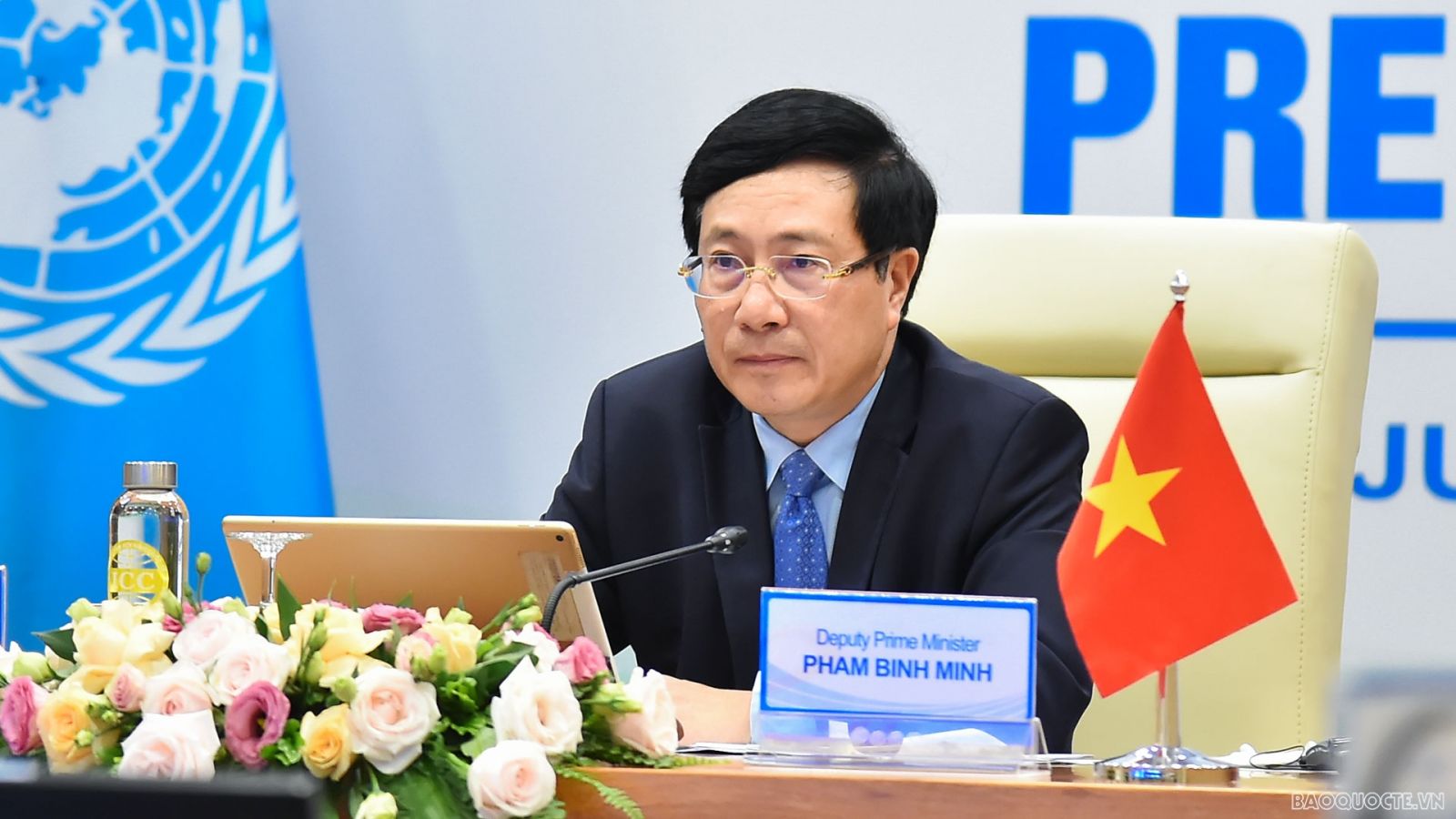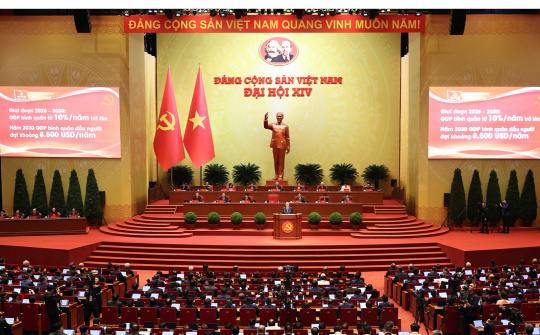Viet Nam aims at fostering large-scale, low-emission and sustainable agricultural development, and strives to reach net-zero emissions, said Deputy Prime Minister Pham Binh Minh.

Deputy Prime Minister Pham Binh Minh addresses the Pre-Summit of the United Nations Food Systems Summit Session "Catalyzing Country-led Innovation to Transform Food Systems," Ha Noi, July 27, 2021. Photo: TGVN
Pham made the above statement at the Pre-Summit of the United Nations Food Systems Summit Session "Catalyzing Country-led Innovation to Transform Food Systems" that took place on July 27.
Viet Nam will actively contribute to expediting the transformation of global food systems as a food providing country that upholds “transparency, responsibility and sustainability” as this would serve to create comprehensive and sustainable breakthroughs for the entire system, and fulfill the 2030 Sustainable Development Goals (SDGs), he said.
In the Southeast Asian country, agriculture plays a particularly important role in ensuring food security, social stability and livelihoods for over 60 percent of the population living in the rural areas, and contributes 14.85 percent of the country's GDP (2020).
The agriculture sector still maintained a growth rate of 2.68 percent in 2020, in which export turnover of agricultural, fish and forest products hit US$41.53 billion in 2020 and US$24.23 billion in the first half of 2021.
According to Pham, despite the remarkable achievements in eradicating poverty and promoting sustainable development around the world, the international community is still facing with a myriad of formidable challenges, which include the unpredictable consequences of climate change, the increasing scarcity of resources for agricultural production, and the hurdles in transforming food systems via the greater use of advanced technology.
In addition, the COVID-19 pandemic has further amplified the problems within global food systems, and brought about new obstacles to sustainable development.
Against such backdrop, the Vietnamese Deputy PM emphasized that the urgent task facing us today is to bolster and further enhance international cooperation so as to defeat hunger and poverty, and ensure food and nutrition security for 7.9 billion people worldwide.
He suggested that food systems need to be transformed into “green”, sustainable and low-emission models and due attention should be given to eco-friendly agricultural production./.





